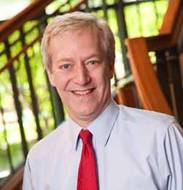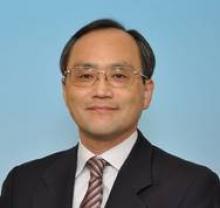SAN FRANCISCO – Japanese patients who underwent surgery for pancreatic cancer were 44% less likely to die within 2 years if they were treated postoperatively with the chemotherapy drug S-1, compared with those given gemcitabine, an interim analysis of an ongoing phase III clinical trial found.
S-1 is not approved in the United States but is used in Japan to treat pancreatic cancer and several other cancers. A separate phase III clinical trial in the United States is underway to study S-1 in the treatment of stomach cancer, several oncology experts said in a press briefing held by the American Society of Clinical Oncology (ASCO).
The current Japanese study randomized 385 patients with pancreatic cancer to postoperative adjuvant therapy with S-1 or gemcitabine. A preplanned interim analysis conducted after the first 205 deaths found that 70% of the 187 patients on S-1 were alive at 2 years, compared with 53% of the 191 patients on gemcitabine, Dr. Katsuhiko Uesaka and his associates reported at a meeting on gastrointestinal cancers.
Patients in the S-1 group also were less likely to relapse. At 2 years, 49% on S-1 were free of disease progression, compared with 29% on gemcitabine, said Dr. Uesaka, medical deputy director of the Shizuoka (Japan) Cancer Center Hospital. The median time to disease progression was 23 months on S-1 and 11 months on gemcitabine.
The study is ongoing; a final analysis is planned after 240 deaths.
S-1 is an oral fluoropyrimidine that combines tegafur, gimeracil, and oteracil. It is approved in Europe for the treatment of gastric cancer at a lower dose than is used in Japan because the drug causes higher rates of diarrhea in white patients. "If the dose and schedule are optimized or adjusted, I expect that S-1 may be applicable for Caucasian patients with pancreatic cancer," he said. "I also expect that some kind of clinical study with S-1 will be done among Caucasian patients with pancreatic cancer."
Patients in the Japanese study tolerated S-1 relatively well, with rates of grade 3 or 4 adverse events below 5% for all except grade 3 hemoglobin toxicity, which affected 9% in the S-1 group. Rates of hematologic adverse events such as leukocytopenia or thrombocytopenia were lower with S-1, compared with gemcitabine, but the S-1 group had slightly higher rates of GI side effects such as stomatitis or diarrhea, he said.
Twenty-eight percent of patients in the S-1 group and 42% in the gemcitabine discontinued treatment, mainly because of toxicity or cancer recurrence, Dr. Uesaka said.
Dr. Philip A. Philip, who discussed Dr. Uesaka’s study at the meeting, said it’s likely that S-1 will become the standard of care for pancreatic cancer treatment in Japan. "In my opinion, non-Japanese studies must be considered to define the role of S-1" in non-Japanese populations, said Dr. Philip, leader of the gastrointestinal cancer multidisciplinary team and professor of medicine and oncology at Wayne State University, Detroit.
Studies should examine the feasibility of using a lower dose of S-1 in non-Japanese populations, he suggested, and explore S-1 treatment for early- and late-stage pancreatic cancer, use of the drug with other cancer drugs or drug combinations, and potential biomarkers that might identify which patients will respond best to S-1.
In a press briefing before the meeting, Dr. Kenneth H. Yu called the results from Dr. Uesaka’s study "very impressive." The findings "will lead to a lot more discussion about whether or not S-1 can be developed for use in the U.S. population," said Dr. Yu of Memorial Sloan-Kettering Cancer Center, New York.
The meeting was cosponsored by ASCO, the American Gastroenterological Association Institute, the American Society for Radiation Oncology, and the Society of Surgical Oncology.
Taiho Pharmaceutical Company, which makes S-1, funded the study. Dr. Uesaka has received honoraria from Taiho and Eli Lilly and Co. Some of his associates in the study have received honoraria or research funding from Taiho or other pharmaceutical companies. Dr. Philip disclosed financial relationships with multiple pharmaceutical companies, though not with Taiho.
On Twitter @SherryBoschert





